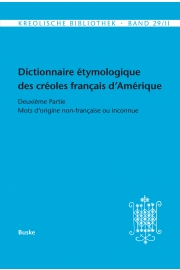The life and death of Mrs. Alice Stevens (1899–1987) and her native language (ca. 1700–1987)
This day in 1987, 36 years ago, the last speaker of Virgin Islands Dutch Creole – Mrs. Alice Stevens – passed away. And with her the language. This post is about the life and death of Alice Stevens and her native language, Dutch Creole.
Dutch Creole was spoken on the three Caribbean Virgin Islands of St. Thomas, St. John, and St. Croix for nearly three centuries. It existed from around 1700 until 1987, when its last speaker passed away. Alice Stevens was born in 1899 on the island of St. John. Dutch Creole likely originated on St. Thomas around 1700. Thus, she was born when the language was already approaching 200 years of age – a significant span in the … ↪







